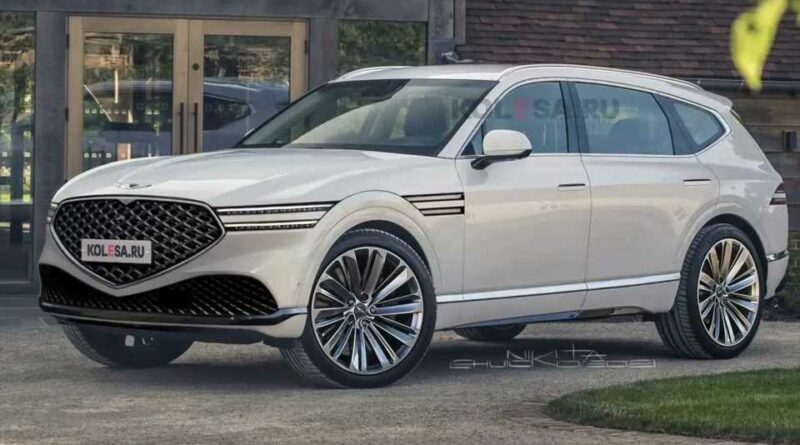Genesis GV90 Flagship To Be The First EV Made At New Factory In Korea
Genesis’ next all-electric SUV, the GV90, will tick off some important boxes for parent company Hyundai Motor Group (HMG) when it goes into production in 2026.
According to The Korean Car Blog, the all-new EV will be the first model to roll off the assembly line of the automotive group’s new plant in Ulsan, South Korea. Additionally, it will be the first large electric SUV built under the Genesis brand, and maybe more importantly, it will be the company’s first model to ride on the new Integrated Modular Architecture (IMA) that was announced last year.
“Genesis’ super-large SUV electric vehicle model will be produced for the first time at the new plant,” said the Ulsan plant’s boss during the groundbreaking ceremony in Korea.
Gallery: 2024 Genesis GV90 rendering
Once fully operational, HMG’s $1.58 billion plant will be capable of churning out up to 200,000 EVs per year. Construction is scheduled to be completed in 2025 and mass production of battery-powered cars will begin in the first quarter of 2026, according to Hyundai.
As for the Genesis GV90, it was spotted during extremely hot weather testing in Death Valley last week, so the development of the marque’s electric flagship SUV seems to be on the right path. There are still two years until the model will be unveiled, so there’s still work to be done, but heavily camouflaged mules are already out and about.
The biggest advantage of Hyundai Motor Group’s Integrated Modular Architecture is that it can combine just about any electric motor, battery pack, and voltage type in the firm’s portfolio. This lowers manufacturing costs and makes it easier for the company to build a lot of cars faster.
The IMA is split into two categories: eM for passenger vehicles and eS for purpose-built cars. Those falling into the eM series will be based on an 800-volt system and will benefit from a selection of five electric motors with a 200-millimeter core and six battery pack types, including nickel cobalt manganese (NCM) and lithium iron phosphate (LFP). Solid-state batteries will also get into the mix by 2030.
Currently, HMG’s electric cars are based on the e-GMP platform that can also accept DC fast charging voltages between 400 and 800 volts. However, IMA is expected to offer more efficiency, lower costs, and lighter cars.
Source: Read Full Article



